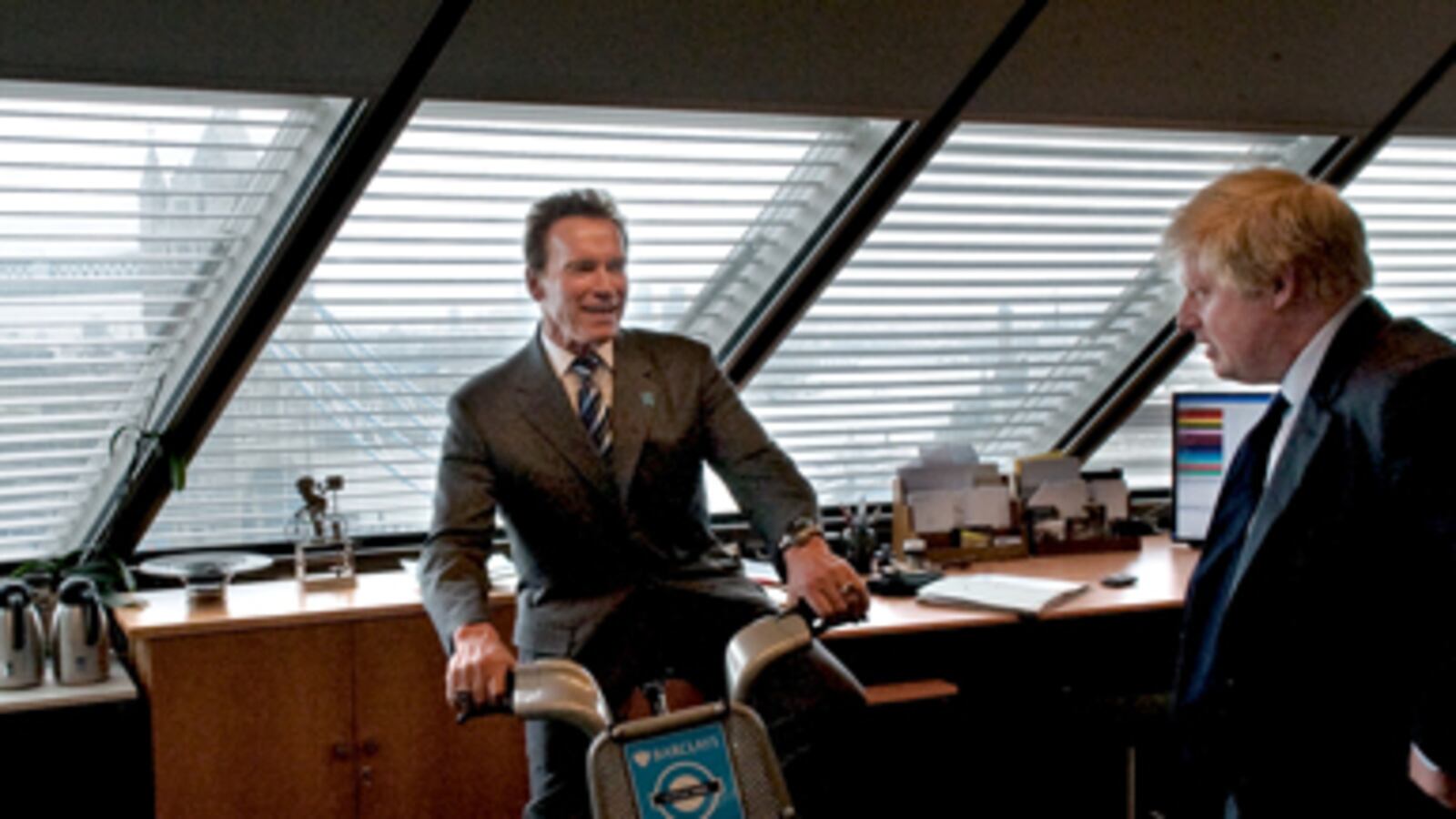Arnold Schwarzenegger’s two terms as California governor started strong, with a host of accomplishments and post-partisan goodwill, but then sputtered out three and a half months ago with the state in fiscal meltdown. Schwarzenegger left office with a job-approval rating in the low 20s. Now he’s trying to figure out “Arnold 4.0,” the next big thing in his implausible journey, Lloyd Grove writes in this week’s Newsweek.
“I feel terrific about where I am in my life, when I look back at what I’ve accomplished,” Schwarzenegger says. “But I feel shitty when I look at myself in the mirror... I’m not ripping off my shirt and trying to sell the body, but when I stand in front of the mirror and really look, I wonder: What the fuck happened here? Jesus Christ. What a beating!”
Schwarzenegger will continue working with the United Nations and his R20 group on climate change, his signature issue as governor. He also will work for infrastructure development and immigration reform while supporting after-school programs and the Special Olympics. He’ll appear at the Arnold Classic, his annual bodybuilding and sports convention in Ohio. The danger, of course, is that his divergent projects will leave him without a storyline.
Even Maria Shriver, Schwarzenegger’s wife of 25 years, isn’t quite sure where her husband might land next. When Schwarzenegger announced his candidacy for governor, he knew that Shriver and their four children didn’t want him to run, largely because of the Kennedy family’s tragic experience in politics. Instead, Shriver relished the role of activist first lady.
But not even his politically savvy wife could save him from the fallout of his last-minute decision to reduce by nine years the 16-year voluntary-manslaughter sentence of Esteban Nuñez, who pleaded guilty to taking part in the 2008 murder of a college student. The dead student’s family, which received no advance warning of the governor’s decision, is suing to have the sentence restored. Nuñez happens to be the son of Schwarzenegger’s friend Fabian Nuñez, the former Democratic speaker of the state assembly.
“We need to change the Constitution and then you can run [for president],” jokes David Cameron.

“I understand people’s disappointments. I understand the parents’ anger. I would probably feel the same way,” Schwarzenegger tells Grove in his first public comment on the commutation, which he granted hours before leaving office, arguing that his friend’s son didn’t inflict the fatal wound.
Former Secretary of State George Shultz, who served as a key adviser during the Schwarzenegger administration, predicts the former governor’s accomplishments will eventually trump the circumstances of his departure. Such accomplishments include reforming the highly partisan redistricting process and mandating open primary elections, limiting worker’s-compensation liability, drumming up public support for $60 billion in infrastructure bonds, protecting millions of acres of natural beauty from development, and passing landmark legislation to reduce greenhouse-gas emissions. “There’s a different feeling about him than about Gray Davis,” Shultz says. “He could walk anywhere in the state and people would want his autograph.”
Anywhere in the world, is more like it.
At one point during the meeting in London with David Cameron, the prime minister jokes, “We need to change the Constitution and then you can run [for president].”
If it were constitutionally permissible, Schwarzenegger probably would be running for president. Instead, he’s reading film scripts and looking for a ghostwriter to help him with his memoirs. His speaking fees are on a par with “a former president,” he brags. He’s already fabulously wealthy, having prospered from canny investments—though he declines to confirm published reports of net worth around $400 million.





